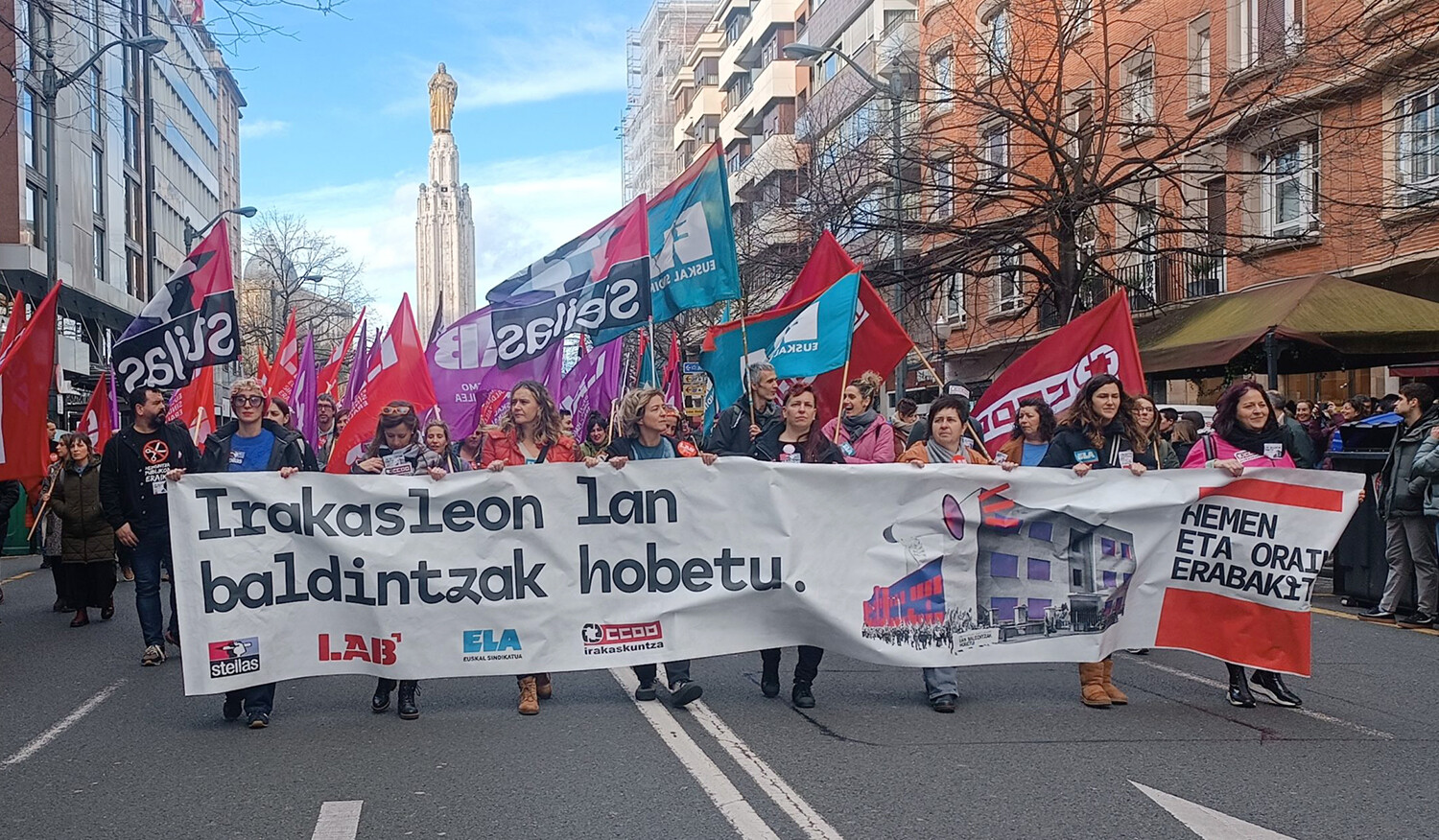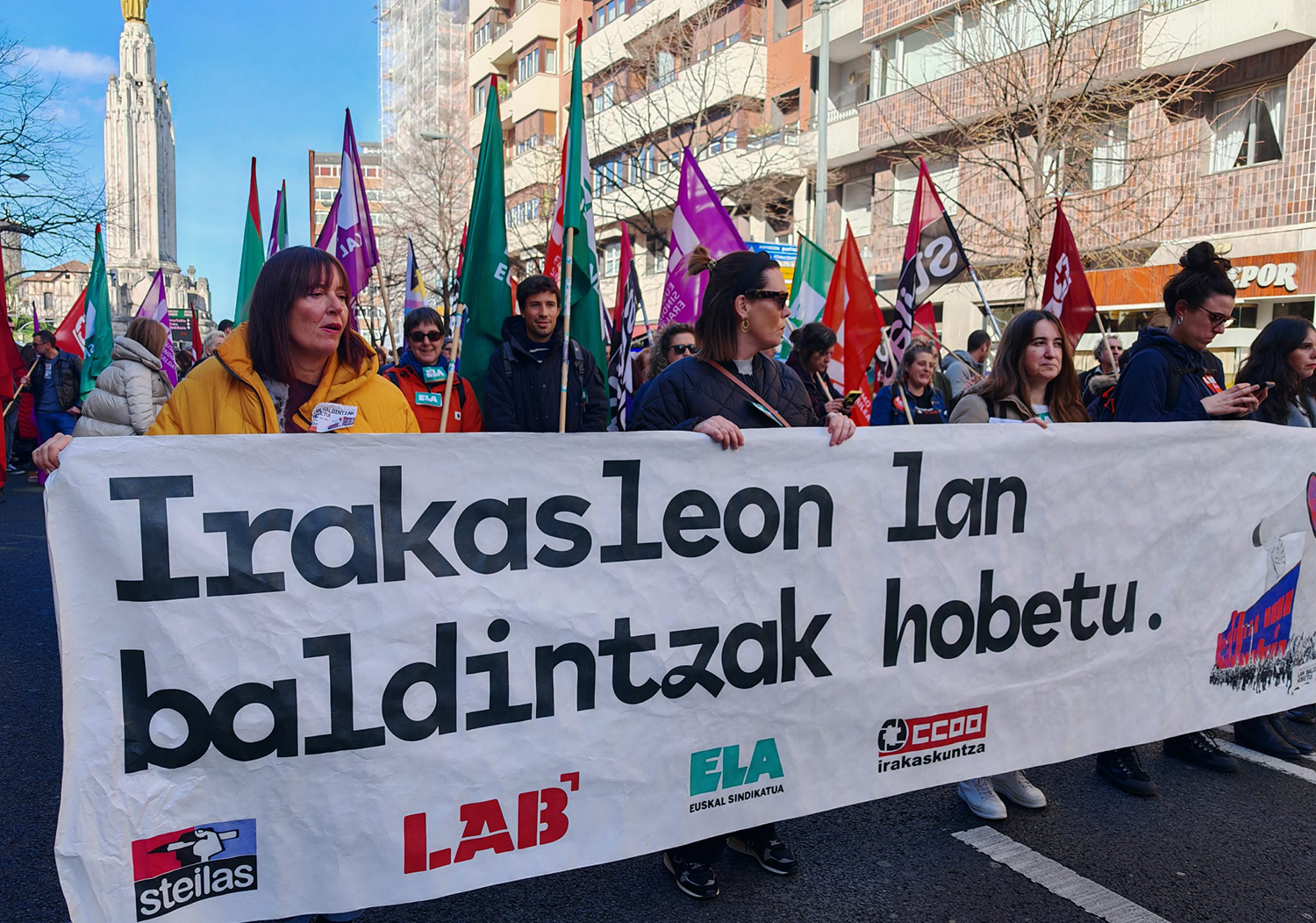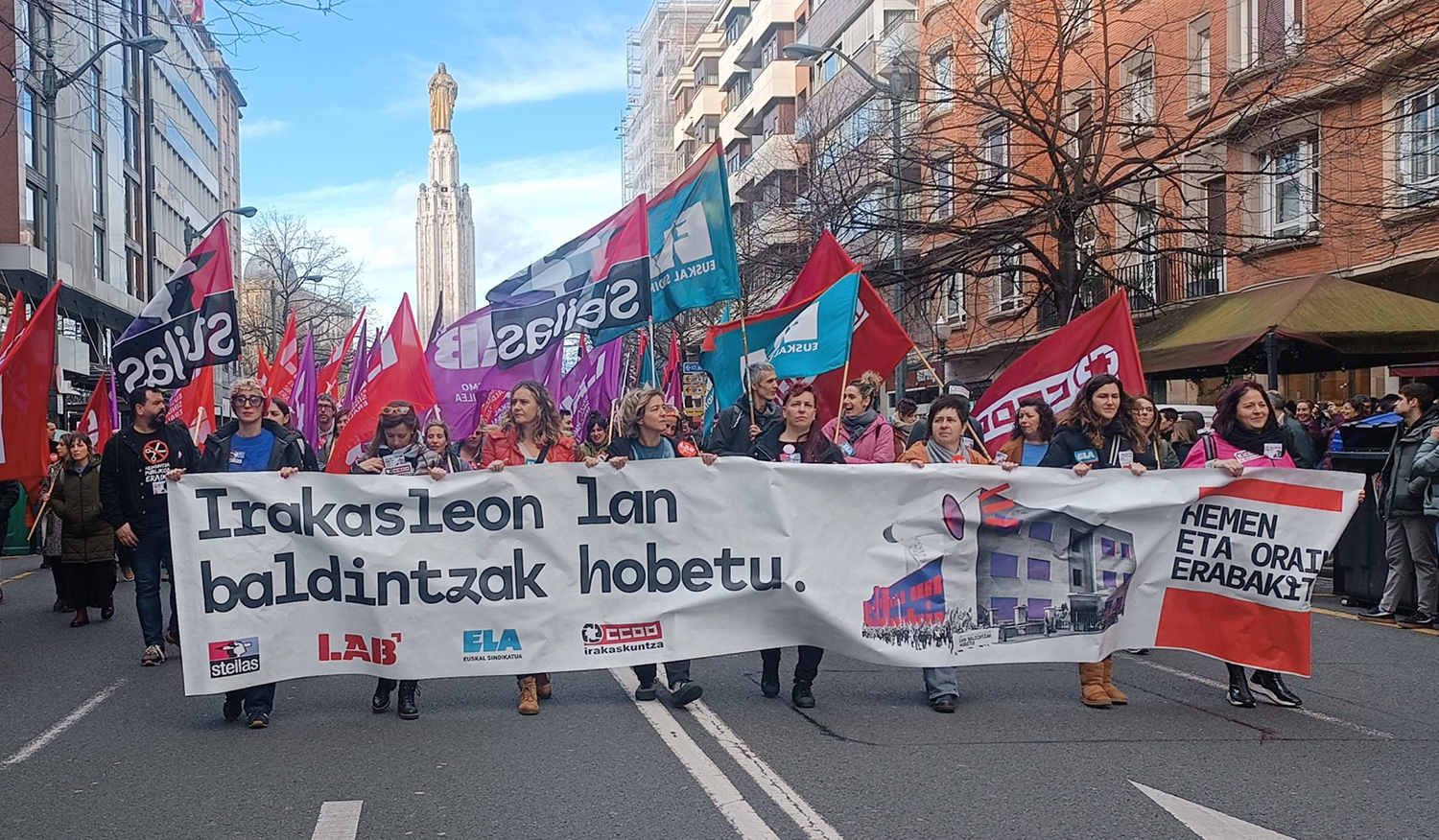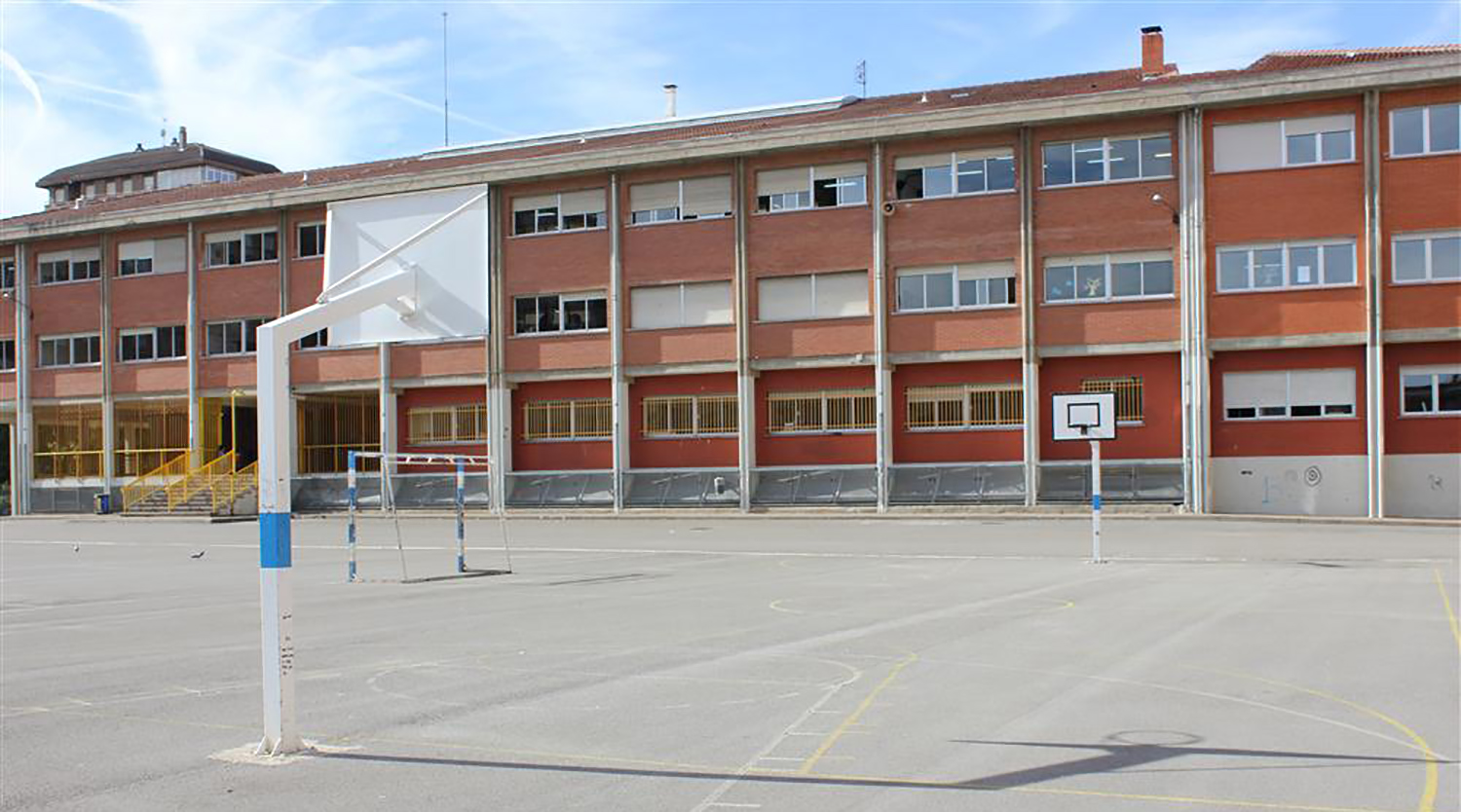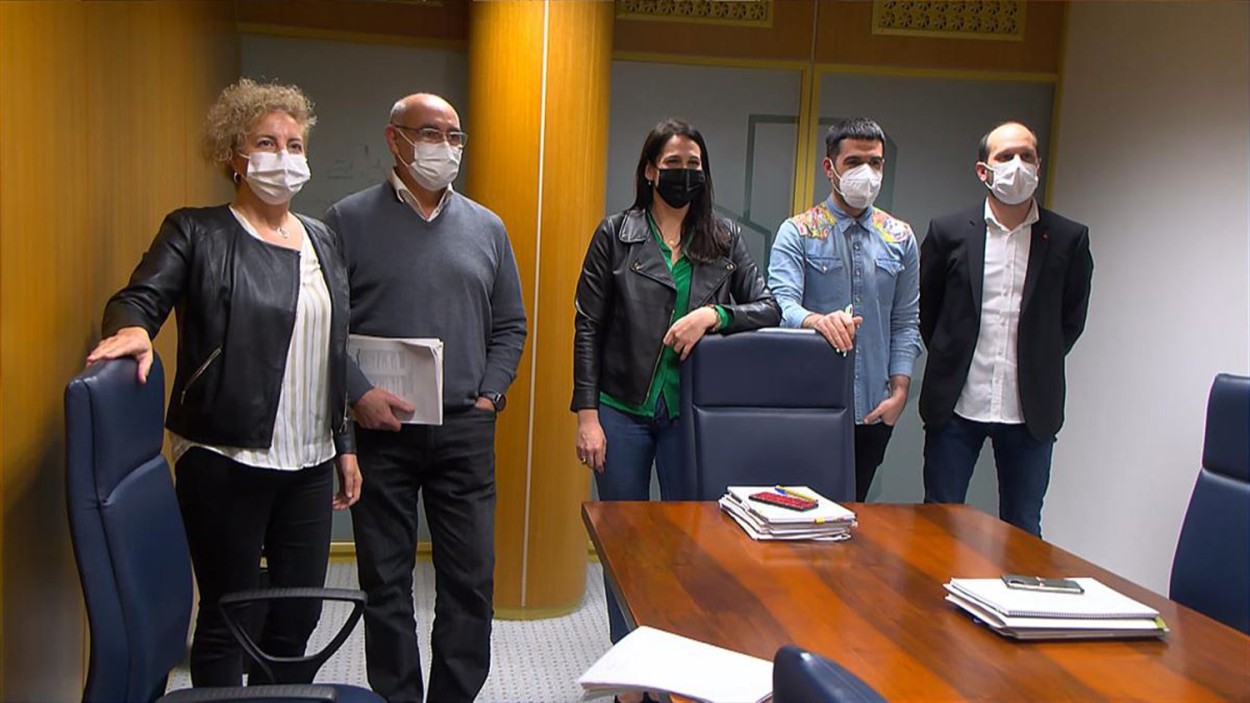Eskola publikoa vs. Ikastolak?
- Article published by Julen Mendoza in his blog: In recent times the debate on education is under way, and I do not like in what terms this debate is taking place. The debate is taking place with the shootings, each keeping their own, and using terms and contents that can be painful. Some say that the Ikastolas are elitist centers, and that becomes painful for those who believe in the Ikastola projects, for those who work to make the Ikastolas a popular movement. Others even say that the Basque public school is French or Spanish, or they even say that in Francoist times there were public schools, which also becomes painful every day, and often in non-Basque areas, for those people who work for the Basque Country and the Basque culture to reach new spaces. And I find it hard to imagine where we can go down that road. I do not understand. Because I believe that those of us in the public school need the Ikastola and the Ikastola community to improve the Basque public school; and I believe that the Ikastolas need public schools to carry out a truly renewed project that responds to today’s society and its challenges.

A few days ago, I saw an interview with Gemma Zabaleta and Aitor Etxarte, led by Eusko Ikaskuntza, on the education of the future. With the death of Aitor Etxarte, I was awakened to the desire to know more about him, and so, among other things, I found this dialogue. At some point, Gemma and Aitor, when imagining the education of the future, warned of the danger of looking at the past, of the danger of looking from nostalgia. And also, in the face of the risk of precipitating too soon, considering that one could lose touch with reality. Therefore, they placed the future perspective in the balance between the two.
"I would like the debate on our educational model to be focused on social challenges"
I bring this interview because I have the feeling that the current education debate is happening more in the past than in the future. I would like the debate on our educational model to focus on social challenges, and not so much on ideological debates, which I believe are insignificant, and by this I do not mean that ideological debates are insignificant, but that those that are happening are insignificant. Because those ideological debates can, many times, move away from reality, and I would at least like to bring to my reality this article of opinion.
And coming back to the realities, and looking to the future, the challenges can be many. And these challenges will not be the same depending on the different administrative territories and the different realities. And in that sense, we'll also have to think that the educational model that corresponds to it doesn't have to be homogeneous, but it can also be polyhedral. That the educational model will need according to the challenge and the context.
There is a particularly important challenge for me in the field of education, and that is equal opportunities. Anyone who wants to build a cohesive society must wonder to what extent their education system responds to this objective. In fact, for many students, education becomes a passport for the change of their lives. There are students who are linked to a very concrete social class and who will hardly be able to change their situation if not by the path offered by their educational and educational community. And I don't just mean resources, universality and/or scholarships. That too, but not just. I mean the ecosystem, the community that that student is going to find, the community that they're going to receive, the community that they're going to build together.
"Reality is segregation, and when I say segregation, I'm not about racial or cultural segregation, but about social class segregation."
And ... Does our educational model respond to that first goal? At least in the reality I know. The reality is segregation, and when I say segregation, I am not about racial or cultural segregation, but about social class segregation. That's how I live in my children's day-to-day school life. And that has consequences on a day-to-day basis. On the one hand, because ghettos are created, the ghettos of social classes, with all that that implies; and on the other, because those classes of centers, with all their problems, have the same ratios as other classes that have a totally different situation. There will therefore be no equal opportunities, because the same system does not guarantee that possibility. And if that's the case, what cohesive society can we imagine in the future?
But let us now give the challenge that I put to him as second, that of the Basque Country, and that of ensuring the use and knowledge of the Basque Country. I would also say that it is practically the only passport that some students of education have for Euskaldunizar. And how can you get that in the centers that are getized? In fact, every student who manages to Euskaldunize in these types of spaces is a victory for many parents. There we have the friends of our children, those who play together and those we hear about in Basque. And we cannot measure these cases of Euskaldunization in quantitative terms, because the conditions for this are not given, but in qualitative terms, because at least these children will have more opportunities for a different future. That too is social cohesion.
"I would say that in villages like my own, and it is not a particularly Euskaldun people, but rather supporting the Basque community, we have to expand that community"
This is undoubtedly closely related to the opening up of the Basque community. And in that we have to thank the Ikastolas very much, that in my generation, now that we are parents, the Euskaldun community spread in our people, and now, from our Euskaldunization, we get the Euskaldunization of others. Of course, in all the peoples of Euskal Herria the situation is not the same. The socio-linguistic reality, and especially the administrative one, has a lot to do with it, and that is where the educational model must be decided. But I would say that in villages like mine, and not especially in an Euskaldun people, rather than supporting the Basque community, we have to expand that community, extend it to other realities, to Euskaldunizar those who would not be Euskaldunizar in other ways. In short, to create community, to create together a new Basque community. And if we wondered if the current educational model responds to that, I would say no.
"The third challenge of education in my opinion: educating from creativity and not from rational knowledge"
And if we were to go to the third and final challenge that, in my opinion, education has -- a challenge of enormous importance -- we should look at this changing society, which is changing at great speed. And for this changing society, this education needs more questions than answers, questions that will continually adapt to the moment and to the context. In fact, it is very significant that students are evaluated on the basis of the answers they give and not on the basis of the questions they ask, especially in view of the fact that we are fraught with questions with such a short expiration date. Today’s answers are not worthwhile for tomorrow, because tomorrow we will have to ask ourselves new questions. And this being so, we're going to have to educate our society from creativity, not just to the students, but also to the workers, and not from rational knowledge until now, because we need creative people for the new times. If in this situation our people do not respond with enthusiasm to a common educational model, they will not be able to respond to current and future challenges. We need a common, transformative strategy that is radically changing to make a better country and a better society. And if we wondered if this educational model responds to this need with equal opportunities, for me the answer would be no.
There, therefore, are three challenges that are important to me, three questions and three answers. And I have no doubt that the people that we are or are participating in this emotional and profound debate that is taking place, we want to respond to these three challenges, whether the Ikastola be part of the educational community or be part of the public school community. And if that is the case, why are we not able to reach new consensus? Probably because of our past. We have placed the debate in the answers to the questions of the past. But, as we said, the present reality needs new questions, and we have not yet asked them. This people, in the 1960s, demonstrated their ability to build new questions, and in response to those questions, we've seen a breakthrough for half a century. Now we need new, unconditional questions to look to the future, and we have to do that together.
"Hik Hasi's proposal for the Basque Public Education System, along the lines of Joxe Mari Auzmendi, can be a good start to put the debate in the right terms"
Starting from there, I would like to recall the proposal made by Hik Hasi, in the line of Joxe Mari Auzmendi, for the Basque Public Education System, which was based on three pillars: (a) that the government responsible for education should finance it with public money and monitor all that funding; (b) that each school should be autonomous to develop its educational project, both in terms of line or style.
I think it can be a good start in putting the debate in the right terms. I believe that municipalities need more competences in the field of education, not just in the maintenance of centres. I also believe that if we add to this the autonomy of the centers, we would have an educational model that suits their reality, an educational model that suits the community. And I think it has to be free and universal, public. And for me, the problem is not how this condition of public is achieved or defined - being in agreement with the conceptual debate -. The problem is that the model we need for me has to be UNIQUE, because in the rest it will not have the capacity to respond to the challenges we have mentioned. We can't have two or three models, we need one, even if it's polyhedral. And we cannot postpone that to the time of a supposed republic, because many things are already in our hands. We need new questions that answer half a century.
Aiaraldeko hainbat irakaslek mezua igorri diete ikasleen guraso eta familiei, dagoen informazio zurrunbiloan, grebarako arrazoiak modu pertsonalean azaltzeak euren borroka eta lanuztea hobeto ulertzeko balioko dielakoan.
Grebaren bezperan Hezkuntza Sailak “edukirik gabeko” mahaia deitu zuela eta sindikatu deitzaileak “errespetatu gabe” akordioa “antzezteko” gutxiengoa duten sindikatuak “erabili” nahi izan zituela salatu ostean, beste bi greba... [+]
The time has come for us to enrol in schools in the Basque Country for the 2025-26 academic year, and in many homes the youngest of the household will take a new step soon, in September, which is schooling. Proud of the Basque Public School The members of Topagune are firmly... [+]
In Basque public schools, teachers play a fundamental role in the management of diversity. They have had to reinvent their way of doing their work in recent years. Public schools seem to me to be laboratories to explore what it is to be a person in a more complex world. Teachers... [+]
Without environments, I'm going to get into the whole thing: public school supporters are being very nice to discuss a few things. Seriously, what is happening with the concerted centres is unacceptable. We are trying to argue with rigour and honesty, as if we were in a debate of... [+]
Although the decision will hardly affect the imbalance between schools, on the pretext of tackling segregation, the Government has withdrawn three pupils from the Public School of Ordizia for use in ikastola.
We have learned of the publication of the final registration lists... [+]








